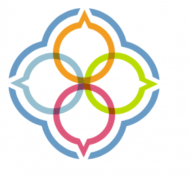The Bicuspid Life
Blog / Produced by The High Calling
Have you ever put yourself through the rigors of the Meyers-Briggs personality measure? Taking this test can be a revelation! It is designed to give you a way to understand your own set of emotions, responses, and actions as well as help you interpret those of others who have taken the test. I've found that this system can contribute to more harmonious relationships once I understand that he is an ISFP and therefore finds it difficult to appreciate my need for planning and closure . . . and she, as an ESTJ, is more like me about that, but so brilliantly extroverted that my occasional need to retreat from society feels foreign and unfriendly to her.
In an effort to discover where I fit into the human race, I've taken the test a couple of times and consistently find myself at home with either INFJ or ENFJ, balanced on the cusp of I (introverted) and E (extroverted), designating myself, therefore, bicuspid, and confirming that I feel an almost equal enjoyment in being with people and being alone. As a writer and speaker, I am constantly meeting like-minded groups of friends, new and old, required to interact with them on an almost nonstop basis over a week or a weekend. I love the exhilaration of this, the reconnection with colleagues, the sense of engagement and common interests and activities that often lead to new insights and appreciations.
But after a while, my soul feels overworked, a bit bruised and sore, even exhausted and raw. Last week, I hosted a party to celebrate the successful conclusion of a many-months-long project at church, the development of a “parish profile” required by our diocese before the calling of a new pastor. The party was a time of mutuality and thanksgiving. The vestry had accepted and validated the profile, the bishop had said it was “great work,” and the candidate for the job had accepted. Joy and rejoicing followed. We each had in hand the final document, the result of intensive research, prayer, and congregational self-study. The committee members and their spouses who came to the party were having such a good time that they didn't want to leave, but when it got late, and the last few guests had said goodbye, I wanted nothing more than to crawl into a deep, dark hole and pull it in after me, so long as I didn't have to hear another human voice or make intelligent conversation for a good long while. I find this kind of withdrawal essential for emotional healing and restoration.
This reflects my own inclinations and personality, but I think it also points to two profound requirements for the Christian life—not only to engage with friends and families as well as with those whose lives are devoid of faith or who are struggling in the shadow of doubt; not only to gather together in Christ's name, to meet with others for worship and communion. But also to allow for time and space for personal solitude and silence when we can read, ponder, listen, heal, and allow the Creator and the Creation to speak to us and renew us in quietness.
I remember realizing once that loneliness is not a choice, but solitude is. When I need an injection of new energy, I've made it a practice to retreat, to plan a solo time with myself and God, checking into a retreat house or camping in the wilderness or taking a “sabbatical weekend” at home. In that environment, separated from human society, I can follow the injunction “Be still and know that I am God.” I nearly always find, in that stillness, a rejuvenation, a divine reconnection that prepares me for re-entry and re-engagement with God's children anywhere, once again fully alive and ready for action!
Questions for personal reflection, online discussion, or small groups:
- On a scale of 1-10 (10 being super busy), how busy are you in your work right now?
- Are you more energized by being around people or spending time alone?
- Do you have times and places in your life for personal solitude? What do they look like?
- For more about the value of personal retreat, read Howard Butt's thoughts on renewal and healing.
- Consider scheduling some time at a local retreat center (like Laity Lodge if you are in Texas).
Photograph "Flooded Bench" by Dave Morris, used under a Creative Commons license.




